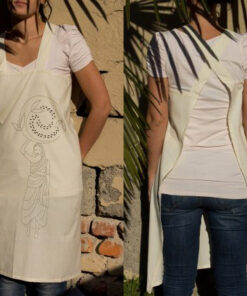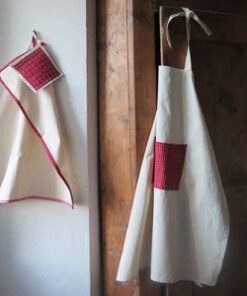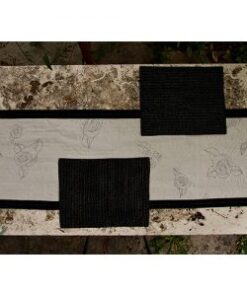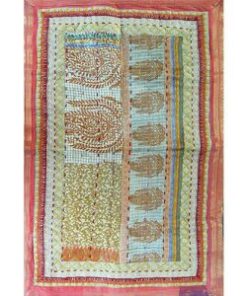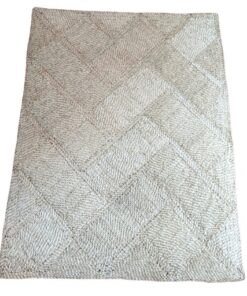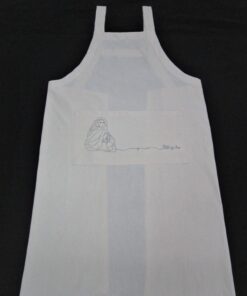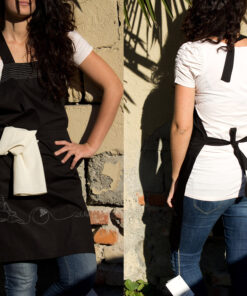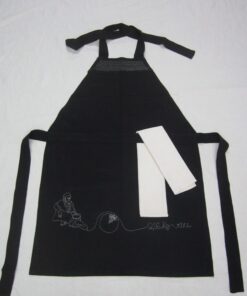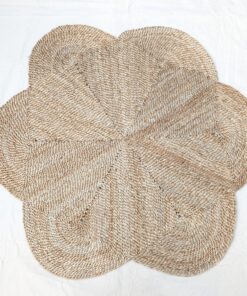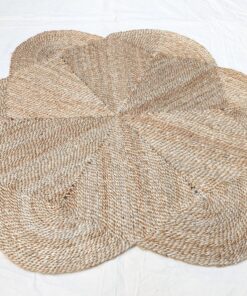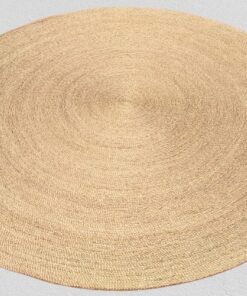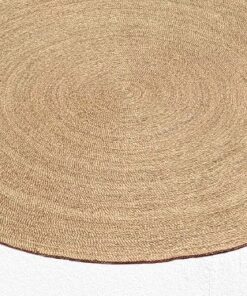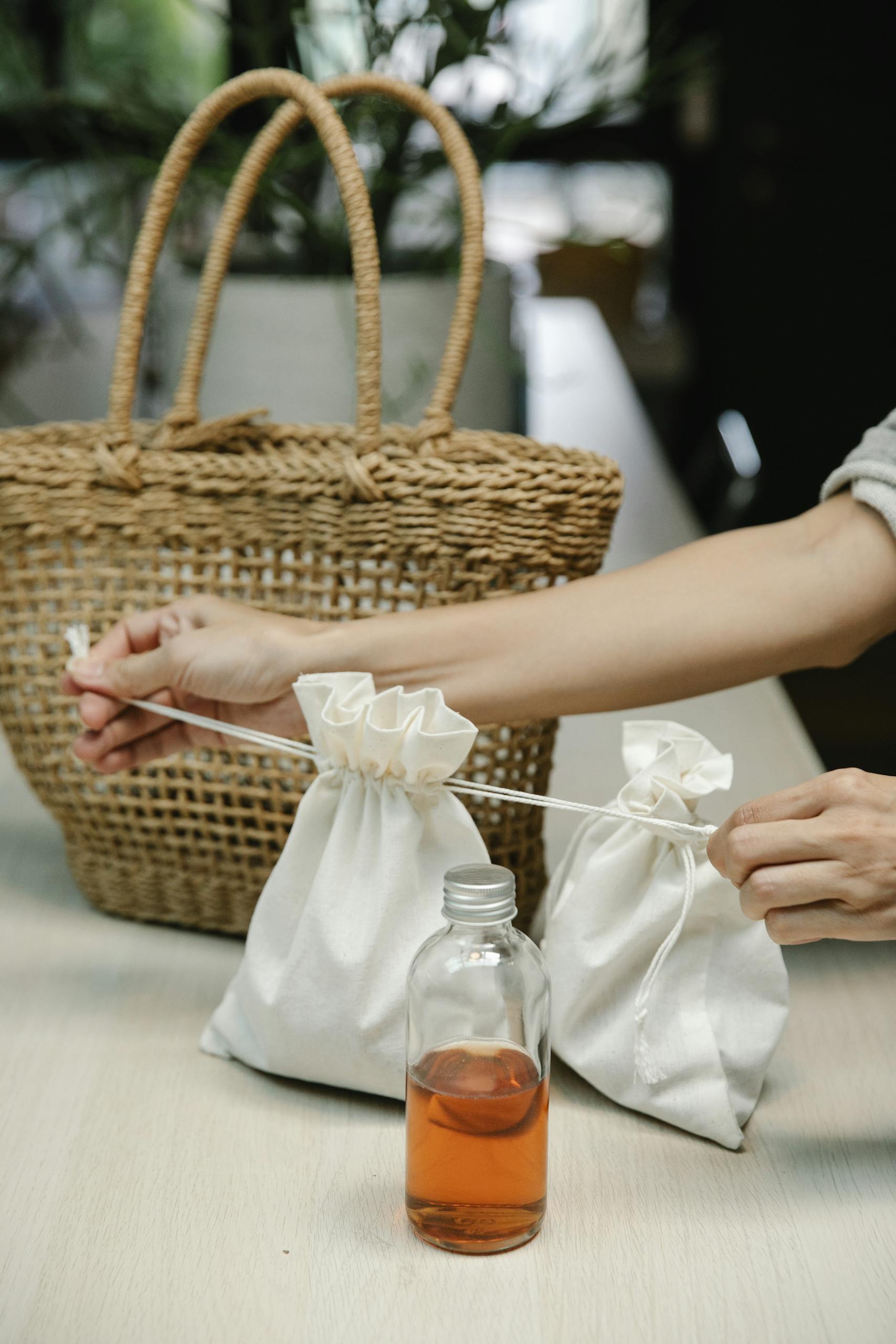
In today’s world, eco-friendly living isn’t just a trend—it’s a necessity. From fashion to groceries, people are making conscious choices to protect the environment. One small yet impactful step in this direction is using small jute bags for daily needs. These versatile, biodegradable bags are stylish, affordable, and a perfect replacement for harmful plastic bags.
But what makes jute bags so special? Let’s dive deep into their environmental benefits, everyday uses, and why they’ve become the go-to choice for eco-conscious individuals.
Table of Contents
- What Are Small Jute Bags?
- Why Jute is an Eco-Friendly Material
- Advantages of Using Small Jute Bags
- Everyday Uses of Small Jute Bags
- Fair Trade Products from BaSE Bangladesh
- Apron – Denim With Upcycled Sari
- Apron – On My Shoulders
- Apron – Upcycled Sari
- B/W Table Runner Roses
- Baradal Carpet
- BaSE Jute Carpet
- BaSE-55004 Apron – sewing is believing
- BaSE-55009 Apron – sooner or later (Black Napkin)
- BaSE-64006a Twin Flower Mat
- BaSE-64015a Jute Diamond Runner (White&Red)
- BaSE-64015b Jute Diamond Runner (White&Black)
- BaSE‐64010E Shahi Round Rug
- Comparing Jute Bags with Other Eco Bags
- How to Care for and Maintain Your Jute Bag
- How to Choose the Perfect Small Jute Bag
- Creative Uses and DIY Ideas with Small Jute Bags
- The Future of Eco-friendly jute bags and Sustainable Fashion
- Conclusion
- FAQs
What Are Small Jute Bags?
Small jute bags are made from natural jute fibers, a soft yet sturdy plant-based material primarily grown in Bangladesh and India. Known as the “Golden Fiber,” jute is famous for its shiny texture, strength, and durability.
Types of Small Jute Bags
There are various styles available depending on purpose:
- Mini tote bags: Great for carrying lunch, cosmetics, or small items.
- Drawstring pouches: Perfect for gifts or jewelry packaging.
- Zippered handbags: Ideal for casual outings.
- Promotional jute bags: Used by brands as eco-friendly packaging.
Whether for shopping, gifting, or storage, small jute bags are functional and fashionable.
Why Jute is an Eco-Friendly Material
The magic of jute lies in its eco-friendly nature. It’s one of the most sustainable natural fibers on Earth.
- Biodegradable: Jute decomposes naturally within months, leaving no toxic residue.
- Renewable: Jute plants grow quickly and require minimal fertilizers or pesticides.
- Low carbon footprint: The cultivation of jute actually absorbs CO₂ and releases O₂ into the atmosphere.
- Energy-efficient production: Manufacturing jute bags consumes significantly less energy compared to synthetic alternatives.
Choosing jute over plastic directly reduces pollution and promotes sustainable farming communities.
Advantages of Using Small Jute Bags
1. Durability and Strength
Despite being lightweight, jute fibers are extremely strong. They can carry heavy loads without tearing, making them ideal for groceries or daily essentials.
2. Cost-Effectiveness and Reusability
Unlike single-use plastic bags, jute bags can be reused hundreds of times. Their longevity saves money and reduces waste in the long run.
3. Stylish and Customizable Designs
Small jute bags come in trendy designs, prints, and colors. Many brands even offer custom printing, making them perfect for corporate gifts, events, or personal branding.
4. Health and Safety Benefits
Unlike synthetic materials that release harmful chemicals, jute is safe, non-toxic, and even helps reduce static electricity.
Everyday Uses of Small Jute Bags
Jute bags fit seamlessly into daily life. Let’s explore a few practical uses:
For Groceries and Shopping
Use them for fruits, vegetables, or daily essentials. They are strong, washable, and reduce the need for plastic.
As Gift Bags or Party Favors
Small jute pouches make beautiful, rustic gift bags. Add ribbons, tags, or decorations for a personalized touch.
Office and School Purposes
Carry notebooks, stationery, or lunch in compact mini jute totes—stylish and professional at the same time.
Travel and Storage Solutions
Use jute pouches to organize cables, toiletries, or accessories while traveling. Their breathability prevents odor buildup.
Fair Trade Products from BaSE Bangladesh
Comparing Jute Bags with Other Eco Bags
Jute vs Cotton Bags
While both are natural, jute requires less water to grow and has a smaller environmental footprint than cotton.
Jute vs Canvas Bags
Canvas bags are durable but heavier. Jute bags are lighter, more affordable, and have a natural rustic charm.
Jute vs Paper Bags
Paper bags tear easily and can’t hold moisture. Jute bags are stronger, reusable, and long-lasting.
| Feature | Jute Bag | Cotton Bag | Paper Bag |
|---|---|---|---|
| Durability | High | Moderate | Low |
| Biodegradable | Yes | Yes | Yes |
| Water Requirement | Very Low | High | Moderate |
| Reusable | Yes | Yes | No |
| Cost | Low | Medium | Low |
How to Care for and Maintain Your Jute Bag
Proper care ensures your jute bag lasts for years.
Cleaning Steps
- Empty the bag and shake off dust.
- Mix mild detergent with cold water.
- Gently scrub using a soft brush.
- Air dry completely to avoid mold.
Storage Tips
- Keep in a dry, ventilated area.
- Avoid direct sunlight for long periods.
- If storing long-term, place in a cotton cover to prevent dust accumulation.
Avoid machine washing or soaking for too long, as it may weaken the fibers.
How to Choose the Perfect Small Jute Bag
When shopping for a jute bag, consider the following:
1. Size and Shape
Think about what you’ll carry—lunch, makeup, or stationery. Choose accordingly.
2. Handle Type
Short handles for hand carry; long straps for shoulder comfort.
3. Design and Customization
Look for printed or plain jute bags depending on your style. Some even have zippers or inner linings for added convenience.
4. Eco-Certification
Always opt for eco-certified or Fair Trade jute bags to ensure sustainability.
5. Trusted Sources
Buy from verified eco-friendly brands or local artisans to support sustainable trade.
Creative Uses and DIY Ideas with Small Jute Bags
Jute’s versatility inspires creativity!
Decorating Your Own Jute Bag
You can personalize it using:
- Fabric paints or markers
- Embroidery and patches
- Beads, ribbons, or buttons
It’s a fun DIY project that adds personality to your bag.
Turning Reusable jute shopping bags into Home Decor
Use old jute bags as planter covers, storage bins, or even wall art. Their rustic charm enhances any eco-friendly home.
Creative Reuse Ideas
- Convert into a pencil holder
- Make mini storage pouches for jewelry
- Craft DIY coasters or table mats
With a bit of imagination, jute can add beauty to your space and reduce waste.
The Future of Eco-friendly jute bags and Sustainable Fashion
The global shift toward sustainable fashion is reshaping industries. Jute, being 100% biodegradable and renewable, stands as a key player in the green revolution. Governments and brands worldwide are adopting jute packaging and eco-friendly policies to reduce carbon footprints.
According to market reports, the global jute bag market is projected to grow significantly as consumers demand plastic-free alternatives. Supporting jute not only protects nature but also empowers rural farmers and artisans in developing nations.
Conclusion
Small jute bags are more than just eco-friendly accessories—they are a statement of responsibility. They embody sustainability, style, and strength. Whether you use them for shopping, gifting, or travel, these natural bags help you live greener while looking good.
Switching to small jute bags may seem like a tiny step, but collectively, it’s a giant leap toward a cleaner planet.
FAQs
1. Are small jute bags waterproof?
Jute is naturally water-resistant but not fully waterproof. Some bags come with inner linings for extra protection.
2. Can I wash jute bags in a washing machine?
No, hand washing with mild soap is recommended to maintain the fiber’s strength and shape.
3. How long can a jute bag last?
With proper care, a good-quality jute bag can last several years.
4. Are jute bags safe for carrying food?
Yes! Jute is non-toxic and breathable, making it safe for food storage when lined properly.
5. Where can I buy eco-friendly small jute bags?
You can find them online on eco-conscious websites, local craft markets, or sustainable brands that promote ethical production.


